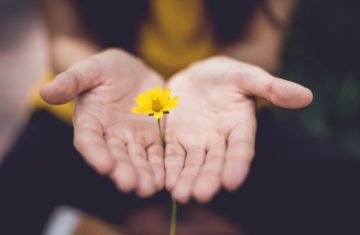Verse 9 encourages us to aspire to liberation. It reads,
Like dew on the tip of a blade of grass, pleasures of the three worlds last only a while and then vanish.
Aspire to the never-changing supreme state of liberation—
This is the practice of bodhisattvas.
What does it mean to aspire to liberation? It means getting free from pursuing things that will eventually leave us empty. These include success, happiness, control, stability, and safety. I imagine you can add a few more of your own. When we go after wordly pursuits, they may feel great for a brief period, but they never last. Dilgo Khyentse says even the greatest success gives us a feeling that lasts only three days. Do we want to organize our entire lives around a feeling that lasts 72 hours?
A better approach is to aspire to liberation, where you do not allow these factors to upend your centeredness, your presence. Khyentse writes, “Liberation means freeing yourself from the ties of your emotions and negative actions.” It’s that simple. Just practice not letting those things pull you around on a chain. When you notice you are getting pulled around, just stop.
It’s simple, but it’s not easy.
Ken McLeod takes this further by asking us to see how all the ways we try to control things is simply about trying to escape the messiness of life. Liberation means accepting our human life with all its pain and joy. McLeod says, “Think of freedom as a way of experiencing life itself- a continuous flow in which you meet what arises in your experience, open to it, do what needs to be done to the best of your ability and then receive the result.”
Elizabeth Gilbert says transformation happens when you get sick of your own B.S. It’s so true. Liberation happens when we see how we’ve been tap dancing and finagling our way through life on a fool’s errand, chasing things that last no longer than morning dew on a blade of grass. We deserve a better life than that.
How can you awaken to liberation this week?



